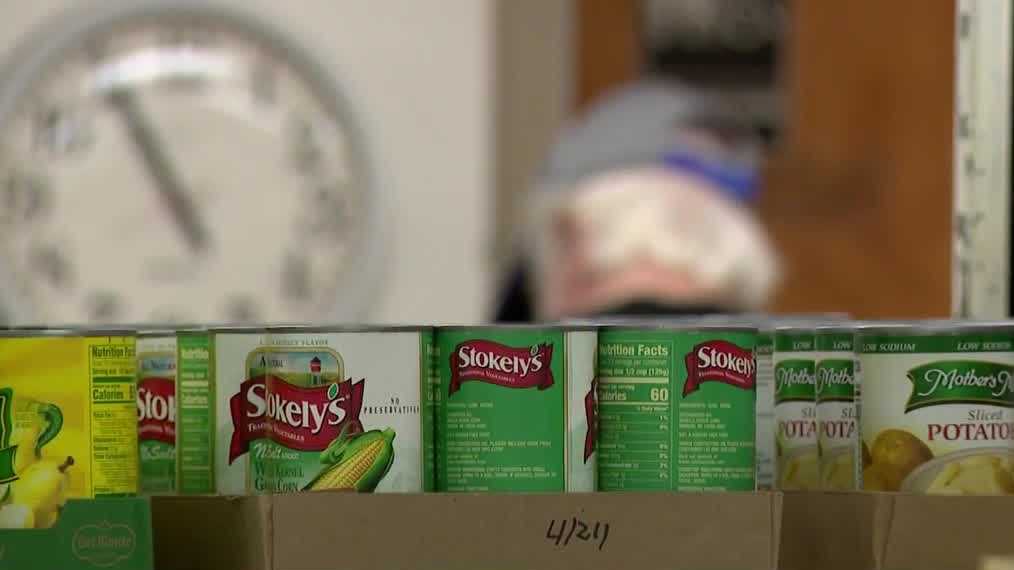
In Indiana, the Supplemental Nutrition Assistance Program, along with local food pantries, provides vital resources for Hoosiers. And both are seeing changes. Recent federal cuts in funding to key food assistance programs, along with inflation costs and increased demand, are putting additional pressure on food pantries, like Hope Southern Indiana. “We’re one of many food pantries who serve southern Indiana and even, betwixt us all, we are not able to meet the demand,” said Becki Romans, executive director. “So the problem is so great and ever-growing, I can’t even imagine what would happen if there were more cuts.”As food pantries face increased demand, changes may also be coming to SNAP. President Donald Trump’s proposed budget bill contains significant cuts to SNAP, including a reduction in federal funding by about 30%, which could affect millions of low-income families. This comes as the U.S. Department of Agriculture just approved Indiana’s waiver to remove soda and candy from SNAP benefits. Soda is the No. 1 commodity purchased with SNAP benefits, according to information from Braun’s office. Purchases of sugary drinks, desserts and candy exceed the combined sales of fruits and vegetables on SNAP. Children enrolled in SNAP consume 43% more sugary drinks than non-SNAP recipients with similar incomes.Indiana was among the first states in the country to apply for the waiver to remove soft drinks and candy from SNAP benefits. Dr. Erika Cheng, an IU School of Medicine associate professor, says there are good arguments on both sides of the issue. “Soda, candy. They don’t help,” she said. “But, you know, it’s more complicated than that. When you restrict certain purchases, you’re, first of all, you’re essentially telling people that they can’t be trusted to buy what’s good for their families.”She added, “Further restricting what they are allowed to purchase isn’t going to do anything to change the fact that they live in a food desert, or they lack transportation to get to a grocery store, or they don’t have culturally sensitive ingredients available for them.”She said how it’s implemented will be important. “The implementation of this policy is going to be very complicated,” she said. “You know, who decides what food constitutes junk food and who decides what doesn’t is something that nobody has a hard and fast answer to. And when you think about something like chocolate milk, you know, is that a nutritious food or not?”Kentucky lawmakers introduced similar legislation this year, but it was withdrawn. The SNAP waiver changes regarding soda and candy in Indiana are set to take effect Jan. 1, 2026.Hope Southern Indiana says there are many ways the community can support the pantry. People can donate food like eggs, meat, boxes of macaroni and cheese, and canned beans. It also regularly runs out of diapers and pet food. “And we need people to donate those items so we can continue to support the community,” said Romans. In addition, people can always donate monetarily online or by dropping off funds.
In Indiana, the Supplemental Nutrition Assistance Program, along with local food pantries, provides vital resources for Hoosiers.
And both are seeing changes.
Advertisement
Recent federal cuts in funding to key food assistance programs, along with inflation costs and increased demand, are putting additional pressure on food pantries, like Hope Southern Indiana.
“We’re one of many food pantries who serve southern Indiana and even, betwixt us all, we are not able to meet the demand,” said Becki Romans, executive director. “So the problem is so great and ever-growing, I can’t even imagine what would happen if there were more cuts.”
As food pantries face increased demand, changes may also be coming to SNAP.
President Donald Trump’s proposed budget bill contains significant cuts to SNAP, including a reduction in federal funding by about 30%, which could affect millions of low-income families.
This comes as the U.S. Department of Agriculture just approved Indiana’s waiver to remove soda and candy from SNAP benefits.
Soda is the No. 1 commodity purchased with SNAP benefits, according to information from Braun’s office. Purchases of sugary drinks, desserts and candy exceed the combined sales of fruits and vegetables on SNAP. Children enrolled in SNAP consume 43% more sugary drinks than non-SNAP recipients with similar incomes.
Indiana was among the first states in the country to apply for the waiver to remove soft drinks and candy from SNAP benefits.
Dr. Erika Cheng, an IU School of Medicine associate professor, says there are good arguments on both sides of the issue.
“Soda, candy. They don’t help,” she said. “But, you know, it’s more complicated than that. When you restrict certain purchases, you’re, first of all, you’re essentially telling people that they can’t be trusted to buy what’s good for their families.”
She added, “Further restricting what they are allowed to purchase isn’t going to do anything to change the fact that they live in a food desert, or they lack transportation to get to a grocery store, or they don’t have culturally sensitive ingredients available for them.”
She said how it’s implemented will be important.
“The implementation of this policy is going to be very complicated,” she said. “You know, who decides what food constitutes junk food and who decides what doesn’t is something that nobody has a hard and fast answer to. And when you think about something like chocolate milk, you know, is that a nutritious food or not?”
Kentucky lawmakers introduced similar legislation this year, but it was withdrawn.
The SNAP waiver changes regarding soda and candy in Indiana are set to take effect Jan. 1, 2026.
Hope Southern Indiana says there are many ways the community can support the pantry.
People can donate food like eggs, meat, boxes of macaroni and cheese, and canned beans.
It also regularly runs out of diapers and pet food.
“And we need people to donate those items so we can continue to support the community,” said Romans.
In addition, people can always donate monetarily online or by dropping off funds.
